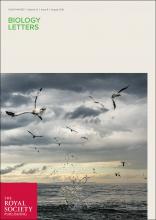 An ecologist in Australia realized a database he was using to spot trends in extinction patterns was problematic, affecting two papers. One journal issued an expression of concern, which has since turned into a retraction. So far, the other journal has left the paper untouched.
An ecologist in Australia realized a database he was using to spot trends in extinction patterns was problematic, affecting two papers. One journal issued an expression of concern, which has since turned into a retraction. So far, the other journal has left the paper untouched.
The now-retracted paper concluded that medium-sized species on islands tend to go extinct more often than large or small mammalian species. But a little over a year ago, Biology Letters flagged the paper with an expression of concern (EOC), noting “concerns regarding the validity of some of the data and methods used in the analysis.”
Now, last author Marcel Cardillo at Australian National University has come to a new conclusion about extinction patterns. A retraction notice that has replaced the EOC explains:
Following publication of the article ‘Predation selectively culls medium-sized species from island mammal faunas’ in Biology Letters (Biol. Lett.10, 20131066, doi:10.1098/rsbl.2013.1066), the publisher was made aware of errors in the database. The authors constructed a new database that corrected all of the known errors, removed records from an unpublished Northern Territory Government source, and added a number of new records from the literature. The new database, with a full description of its construction, will be published in a forthcoming correction article in Global Ecology and Biogeography. On repeating the analyses using the new data, a new conclusion was reached that indicates island extinction patterns are more biased towards larger sizes, rather than intermediate sizes. Given that the main conclusion of the original paper is no longer supported, the editors have decided to retract the article. The new analyses and results will be published elsewhere.
The errors in the original database resulted from honest mistakes, and there is no suggestion of any author misconduct.
Despite numerous attempts to contact [co-author] Emily Hanna, she could not be reached. This retraction is therefore signed by Marcel Cardillo on behalf of both authors.
Dr Marcel Cardillo
We initially reported on the EOC after it was placed on the paper in October, 2015. Cardillo told us in March what went wrong with the data collection:
This was a student project I supervised where the data collection was not as thorough as it should have been and some errors were noticed in the dataset following publication…I have invested considerable time (and expense) fixing the database and repeating the analyses.
The database was used in another paper, “Island mammal extinctions are determined by interactive effects of life history, island biogeography and mesopredator suppression” published in Global Ecology and Biogeography (GEB).
After the EOC was placed on the Biology Letters paper, we asked Cardillo whether GEB would also issue an EOC. He told us in March:
The editors of this journal allowed me the chance to correct the data and repeat the analyses without publishing a statement of concern, and we will most likely present the updated data and results for this paper in a correction article in the next few weeks.
The Editor in Chief of GEB, Brian McGill, told us in March:
[W]e have chosen to take a different path in how to handle this at GEB that appears in the end to have taken longer unfortunately, but which I hope will bring more clarity on where the true science stands at the end by carefully lining up the facts.
We’ve reached out to McGill and Cardillo to see whether there are plans to flag or retract the GEB paper, and ask when the correction article mentioned in the Biology Letters retraction notice will be published. We reached out to Hanna for comment via her Australian National University email address. We will update this post if we hear back.
Hat tip: Rolf Degen
Like Retraction Watch? Consider making a tax-deductible contribution to support our growth. You can also follow us on Twitter, like us on Facebook, add us to your RSS reader, sign up on our homepage for an email every time there’s a new post, or subscribe to our new daily digest. Click here to review our Comments Policy.